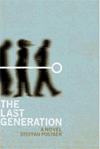Reverse engineering creative so it seems scientific.
September 5, 2018

The “science” behind the creative.
One of the things I’ve come to disdain about our business is how damn serious we take it. Not the craft itself — creating, curating and choreography — but the extemporaneous crap we built around it. Stuff like process and proprietary tools; the things we fill our slides with to make people think we’re methodical and scientific.
Whether we make ads or websites, we have complicated what we do beyond what is necessary to do it well. That is why briefs are no longer brief. That is why Cannes has become a cluster f—k. That is why I am writing this post.
Planning and strategy are the progenitors of creativity. The agency gets an assignment and we formulate a team. Left-brains give us facts and insights. The right brains turn them into ideas.
In a healthy agency, the two sides work together. Part of this is collaboration. Part of it isn’t. Each assignment predicates a different balance of both. Inviolate in this are the people. The better the people the better the outcomes. Yet, as obvious and true as all this is, agencies insist on codifying every step we take.
We call it ‘our process.’
Process is how agencies mitigate the fear involved with taking risks. We create the illusion of proof to support an idea. This insight divided by that challenge equals a solution. Ta da!
Reverse alchemy occurs when an agency justifies its creative after the fact. So many ideas are the result of divine inspiration yet that’s hard to package and pitch. Cool ideas need to be scientific case studies, for award shows as well as client presentations. Therefore, we manufacture smart sounding bullshit to appease the decision-makers.
Every agency I ever worked at romanticized their data … a lot. It’s just what happens when mythmakers and bean counters work together: Collusion!
Food for thought next time we pray at the altar of agency process. We have made our agencies into churches of organized religions but divine inspiration often has nothing to do with it.
Author’s Note: A version of this story first appeared in Reel Chicago



 The Happy Soul Industry
The Happy Soul Industry The Last Generation
The Last Generation